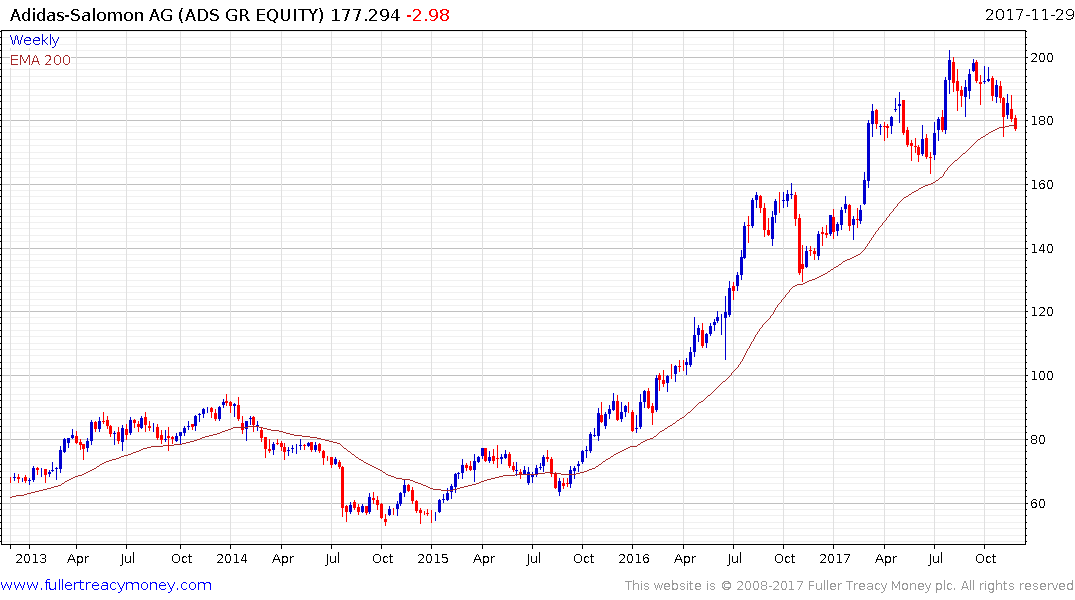Inside Adidas' Robot-Powered, On-Demand Sneaker Factory
This article by for Wired.com may be of interest to subscribers. Here is as section:
Some economists are bullish on ideas like Speedfactory and see it as the start of a much larger trend. “We are finally escaping from the manufacturing trap that we’ve been in for the last 20 years,” says Michael Mandel, chief economic strategist at the Progressive Policy Institute in Washington, DC, referring to the mass offshoring of production to Asia.
Improvements in automation can now finally substitute for cheap foreign labor, which will naturally push factories closer to where the consumers are. As manufacturing shifts from offshore mass production to customized, local fabrication, new jobs will open up for human workers, some of which have yet to reveal themselves. “We used to have distribution built around manufacturing,” Mandel says, referencing the centrality of offshore factories, “and now I think that manufacturing is going to be built around distribution.”
The growing role of automation in the garment and shoe sector has been a topic I’ve written about extensively over the last few years. Textiles remain one of the most labour intensive of all industries and has also played a pivotal role as a first step on the road to development for many developing countries.
In simple terms, virtually every piece of clothing we wear today has passed through someone’s hands in the manufacturing process because of the requirement for sewing machines to be operated by hand. The expanding and increasingly affluent global middle class is going to require more clothing and footwear which is bullish for demand. However, the backlash against globalisation in the west coupled with lower energy prices in the USA, represents a tailwind for onshoring.
Right now, these kinds of highly automated factories represent little more than a sliver of global production but Asian manufacturers expect to be close to fully automated within the decade. They have no choice since they know they will need to compete with onshore supply at some stage.

Flex Ltd is managing Nike’s automated factory. The share pulled back sharply yesterday but a sustained move below the trend mean would be required to question medium-term scope for additional upside.

Shima Seiki has a line of highly automated sewing machines. The share completed an eight-year base formation last year and hit a peak of at least near-term significant this week. A pullback of more than ¥1000 would represent a trend inconsistency.

Meanwhile Adidas has pulled back to test the region of the trend mean, in an otherwise consistent advance.


